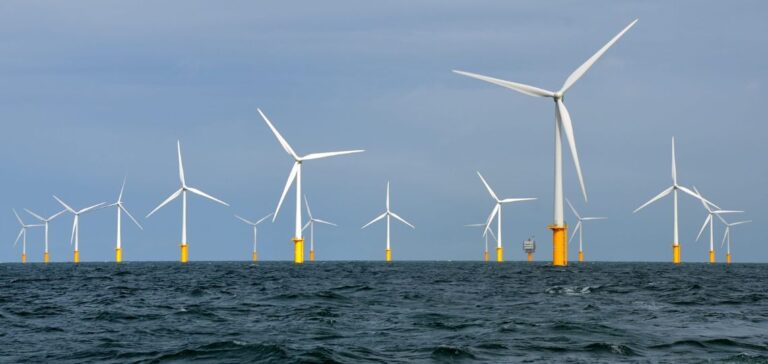The Kaskasi wind farm was inaugurated in Germany on March 23. Located about 35 kilometers north of the island of Helgoland, the park has an installed capacity of 342 megawatts (MW) and can supply over 400,000 homes with green electricity. The builders gradually commissioned the 38 wind turbines over a four-month period and now have all the turbines connected to the grid. The approval process began in spring 2019 and construction was given the green light by the German Federal Maritime and Hydrographic Agency in late 2020. The total duration of the offshore construction was nine months, with investment costs for Kaskasi amounting to approximately 800 million Euros.
Inauguration of a key player in the energy transition
At the inauguration ceremony, Robert Habeck, German Federal Minister of Economics and Climate Action, emphasized the importance of offshore wind power in the energy transition. According to him, offshore wind turbines can produce more electricity for more hours per year than onshore wind turbines. Germany has thus significantly increased the expansion targets of the German Offshore Wind Energy Act to at least 30 gigawatts by 2030. The Minister also announced significant improvements to the legal framework and measures to speed up approval procedures.
The Kaskasi wind farm was the only new offshore wind farm completed off the German coast last year. Markus Krebber, CEO of RWE AG, emphasized the importance of offshore wind in the fight against climate change and announced RWE’s participation in the major German offshore auctions this summer. RWE is one of the world’s leading offshore wind companies and can make a significant contribution to achieving the climate goals.
Recyclable rotor blades for the Kaskasi wind farm
Siemens Gamesa has equipped three turbines at the Kaskasi wind farm with recyclable rotor blades, thanks to a new resin with a special chemical structure that separates the materials for future reuse. This technology is also used in the Sofia wind farm under construction in the United Kingdom.
In conclusion, the Kaskasi wind farm is a major project in the German energy transition. Its commissioning represents an important milestone for the expansion of offshore wind power in Germany. Wind turbines can produce more electricity for more hours per year than wind turbines






















